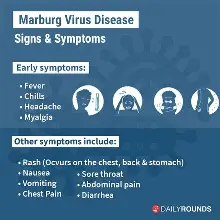Ethiopia has confirmed an outbreak of the deadly Marburg virus in the south of the country, according to the Africa Centres for Disease Control and Prevention (Africa CDC).
The virus, one of the most lethal known pathogens, is similar to Ebola. It causes severe bleeding, fever, vomiting and diarrhoea, with an incubation period of up to 21 days. Transmission occurs through contact with body fluids, and the fatality rate ranges between 25 and 80 per cent.
The Director-General of the World Health Organization, Dr Tedros Adhanom Ghebreyesus, announced on Friday that at least nine cases had been detected in southern Ethiopia. This followed reports received by Africa CDC two days earlier of a suspected haemorrhagic virus in the region.
“Marburg virus disease (MVD) has been confirmed by the National Reference Laboratory in Ethiopia,” Africa CDC stated on Saturday. The organisation added that further epidemiological investigations and laboratory analyses were under way, noting that the strain detected bore similarities to those previously identified in east Africa.
Authorities in Ethiopia have moved swiftly to confirm and contain the outbreak in the Jinka area. Africa CDC said it would continue to work with the country to ensure an effective response and to reduce the risk of the virus spreading to other parts of east Africa.
Earlier this year, Tanzania reported an epidemic of Marburg virus which killed 10 people before being declared over in March. Rwanda also confirmed its first known outbreak in December 2024, which resulted in 15 deaths before being successfully contained.
There is currently no approved vaccine or antiviral treatment for Marburg virus. However, oral or intravenous rehydration and treatment of specific symptoms can improve survival rates. Rwanda trialled an experimental vaccine from the US-based Sabin Vaccine Institute last year.



